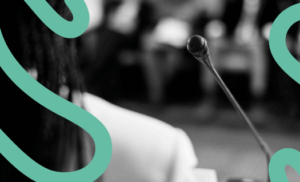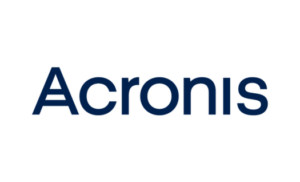In the world of corporate communication, the relationship with the media is key for company spokespersons. There are many ways to maintain this continuous communication with the media through the generation of content, but in this post we will focus on the value of the interview.
An interview can be a great opportunity to reinforce the image of a company or a professional, but it can also be a double-edged sword if not handled correctly.
How do we ensure that the message reaches the journalist and the media audience in a clear, effective and positive way?
Here are some key tips on how to respond well to an interview.
- The importance of preparation. A good interview does not start when the journalist asks the first question, but long before. Preparation is key to being in control of the conversation and ensuring that the right messages are conveyed. It is the job of the communications agency to prepare a full briefing of the media and the journalist who will be interviewing the spokesperson. What is his or her style, what has he or she published about your sector?
- Define key messages. It is also very important to define the topics to be covered: what three main ideas do you want to make clear in the interview? And, of course, anticipate potentially tricky questions – are there sensitive issues that may come up? How do you respond without falling into the trap? This is what is known in our jargon as drawing up a Q&A (‘basic questions and answers’ document).
Types of interviews and how to deal with them
Not all interviews are the same. Adapting the approach according to the format helps to better manage communication and this also needs to be prepared for. The most common interviews a spokesperson may face are:
- In-depth interviews. They help develop messages and provide context. It is important to structure the answers well and not to go on too long.
- Quick statements or ‘soundbites’. In television or radio, time is limited. Respond with short, punchy sentences that can be used as cuts. We should always leave highlights in our answers.
- Live interviews. Agility is key here. Listen carefully, respond confidently and avoid rambling.
- Written or mailed interviews. They allow greater control over responses. Take advantage of this to develop more structured messages aligned with the communication strategy.
How to answer difficult questions?
Journalists can ask tricky questions, either because of their controversial nature or because they are looking for a strong statement. We need to be prepared for this. Some strategies for handling these moments are:
- Redirecting the conversation. If the question is engaging, refocus the answer on the key messages. For example, if you are asked about an internal problem, you can focus on solutions and vision for the future.
- Rephrase positively. Avoid outright denial of something negative, as this can reinforce the idea. Instead, give an alternative response that highlights positive aspects. This is what we call ‘turning the tables’.
- Do not improvise on sensitive issues. If a question touches on a sensitive issue and you do not have a clear answer, it is better to say ‘I will check the information and give you an accurate answer’ than to give a vague or incorrect answer. But to avoid this situation, we recommend that you have your facts and figures well prepared.
- Language and attitude. Non-verbal communication also counts. The content of the answer is important, but so is how it is said. Non-verbal communication plays a key role in how responses are perceived, so it is essential to maintain eye contact with the journalist and an open posture to convey confidence and avoid gestures that could be interpreted as insecurity. We recommend using a calm and confident tone of voice, without sounding overly prepared or robotic.
How do we close the interview?
Don’t let the interview end without reinforcing the key messages. A good strategy is to close with a sentence that summarises the main idea you want to convey, something like: ‘The important thing here is that we are committed to…’ or ‘Our goal is to keep moving forward on…’.
If the interview is live, it is key to keep your attention until the very last moment. There is no such thing as ‘off the record’: anything you say can be used.
In short, responding well to an interview is not about avoiding tricky questions, but about being able to handle them strategically and confidently. Preparation, language skills and the ability to turn questions into opportunities to reinforce key messages are essential skills for any spokesperson. With these tips, you will be better prepared to face any interview and turn it into an occasion to strengthen the image of your company or personal brand.










